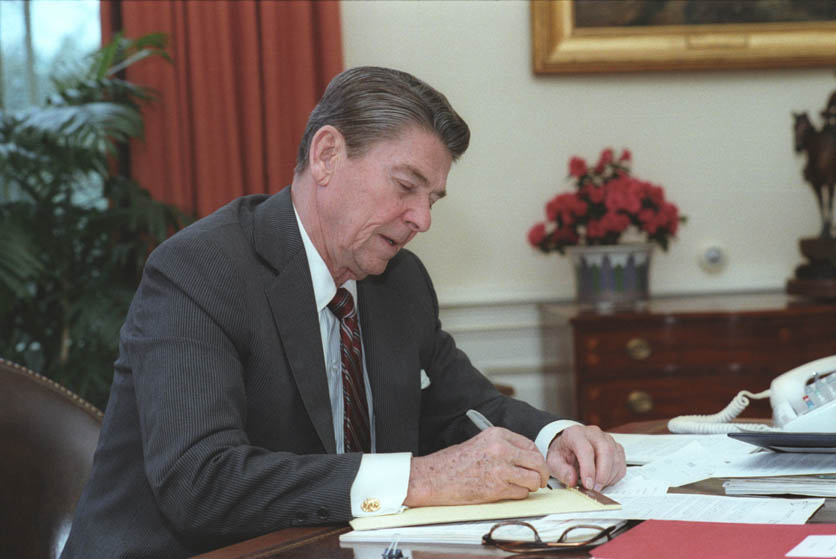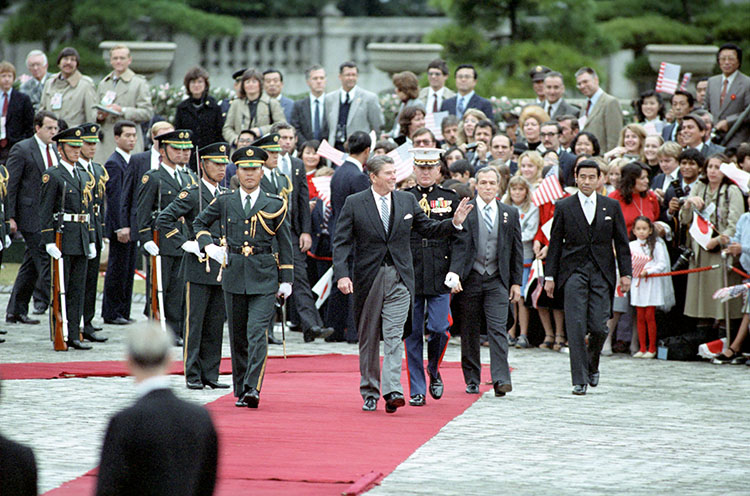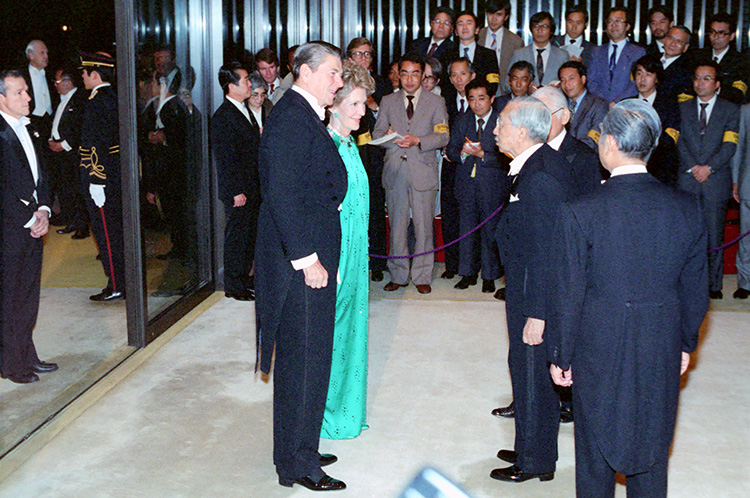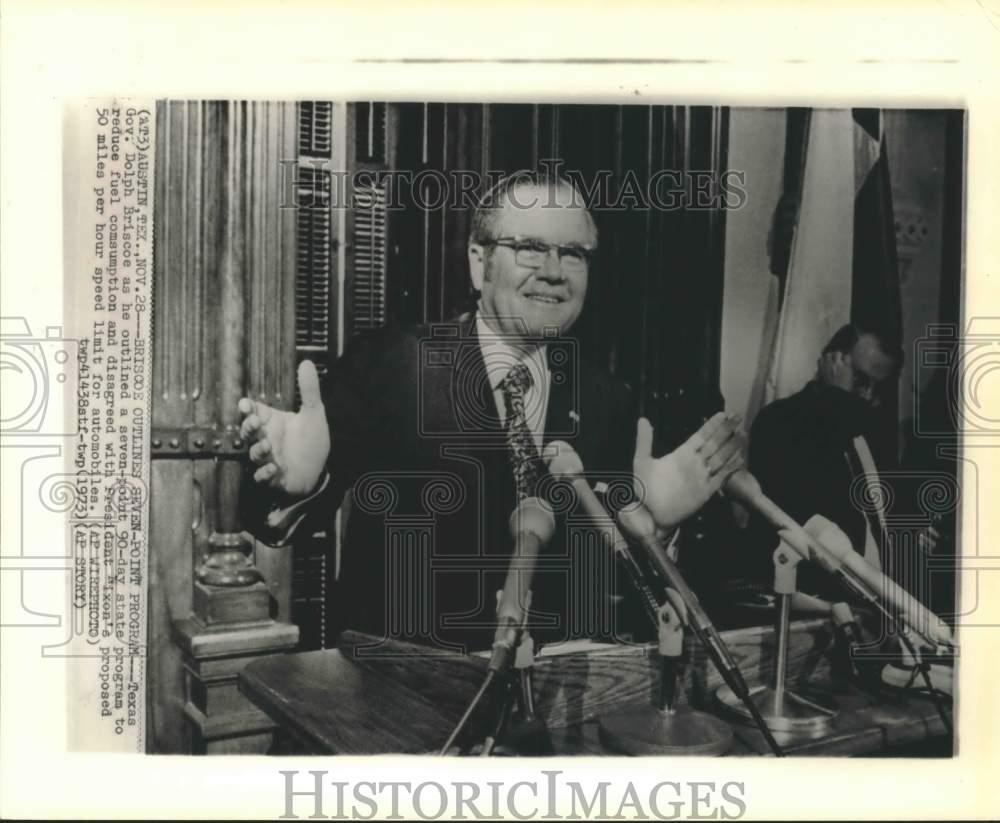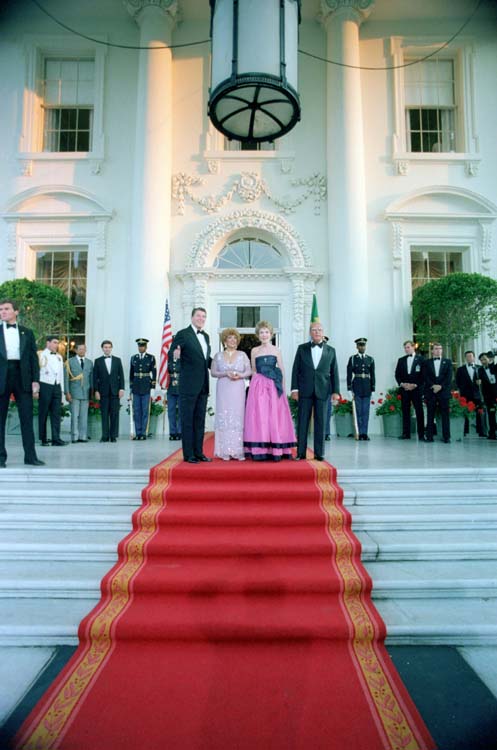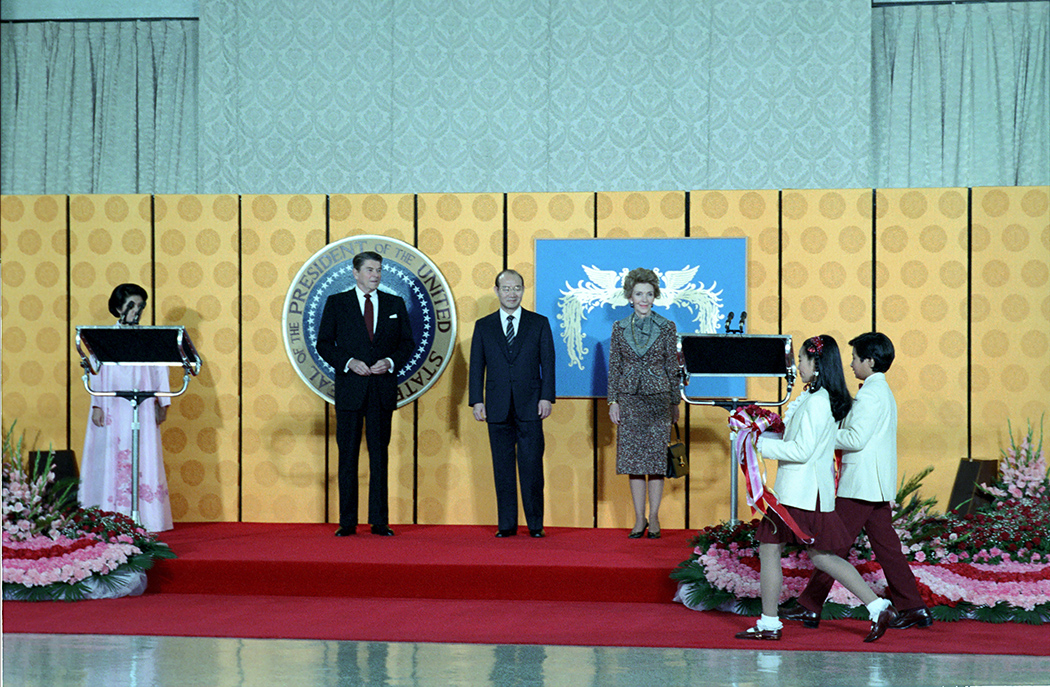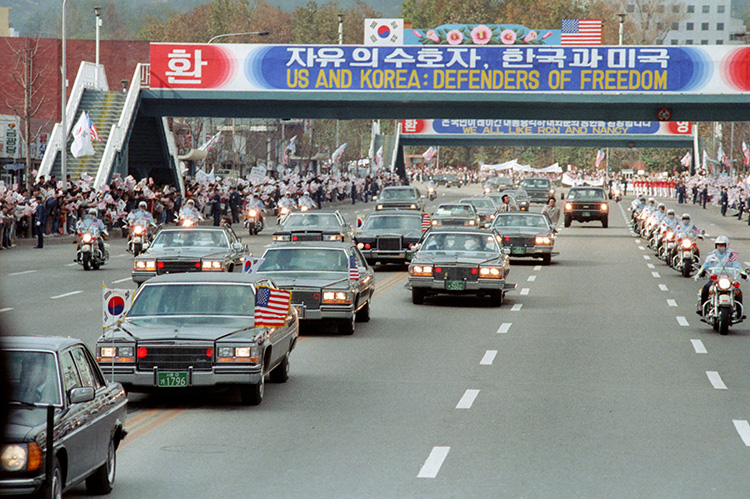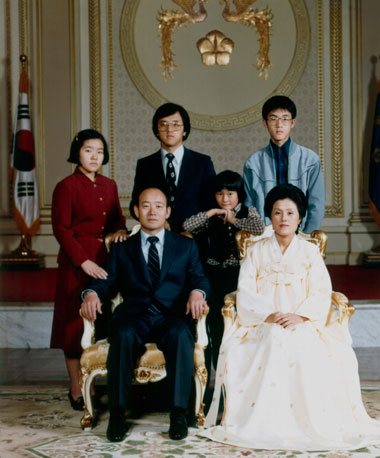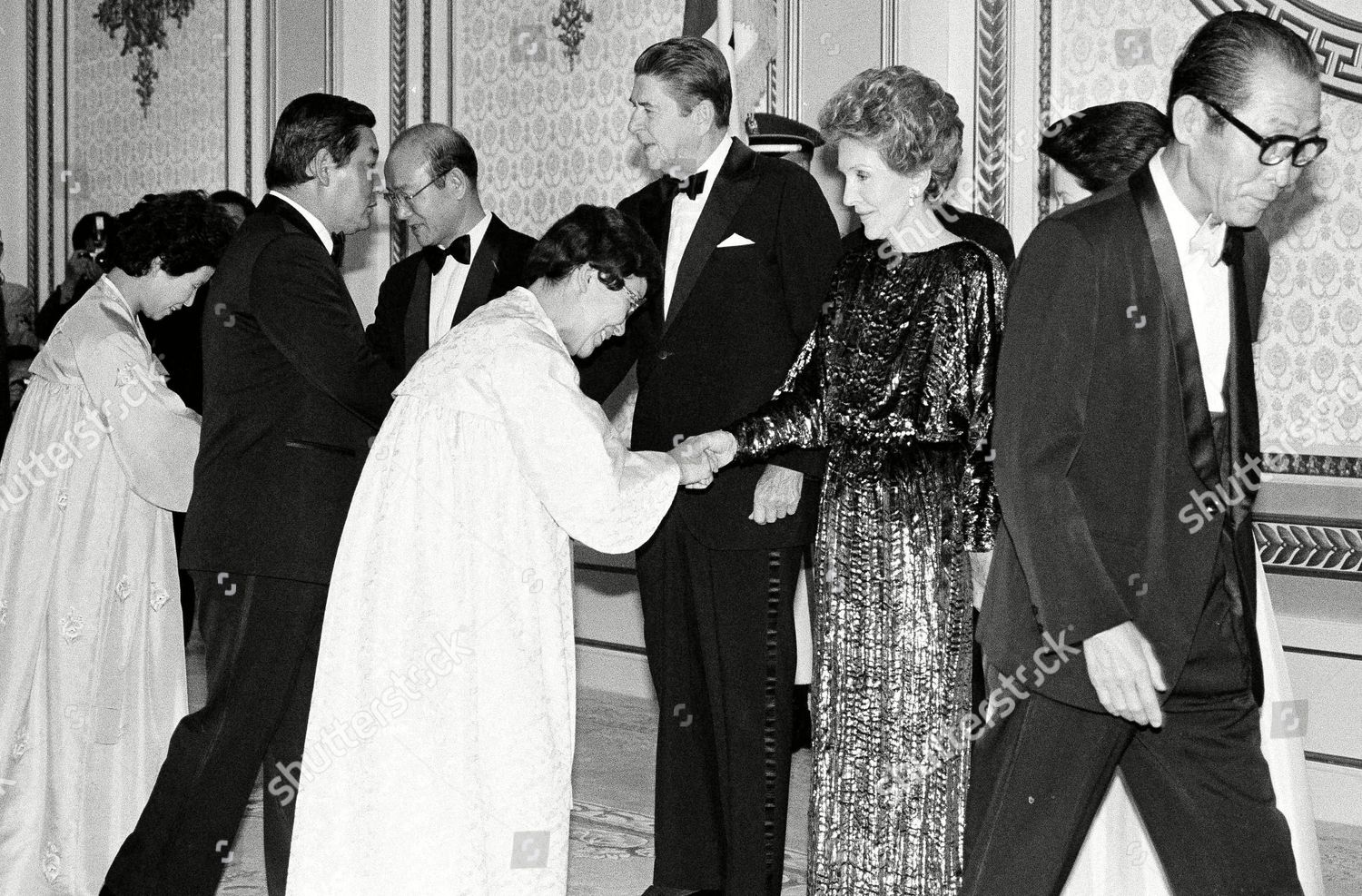......"Off to Asia. A farewell ceremony in the East Room; then flying on Marine One to Andrews Air Force Base for the flight to Japan, Republic of Korea and the Philippines. Began the day however with a short meeting re a possible airstrike in Beirut against those who murdered our Marines. I decided we don't have enough intelligence information as of yet.......
......On my way, 7 1/2 hours to Anchorage, Alaska. There is a 4-hour time difference, so it was only 11:30 AM in the morning, but at this time of the year, it seemed like evening. We met with military and civilians 8,000 of them in a hangar. We were warmly received by the most enthusiastic crowd. On our way over the Pacific, there was another 7 1/2 hours to Tokyo. Before we left the States, we learned that George (Vice President George HW Bush) had cast the tie-breaking vote in the Senate to killing an effort to deleting Binary (Chemical weapons) from the Defense bill. Later on during the flight, we got word that the Senate passed the Defense appropriations bill in an overwhelming 86-6 vote......
......We tried the new plan in order to minimizing the long jet-lag due to the long 7 1/2 hour flight. Only sacked for 6 hours------didn't sleep all of them. Then got up and had brunch on what would've been lunch time Tokyo......"
Diary Entry of Ronald Wilson Reagan
41st President of the United States
Wednesday, 9 November 1983
